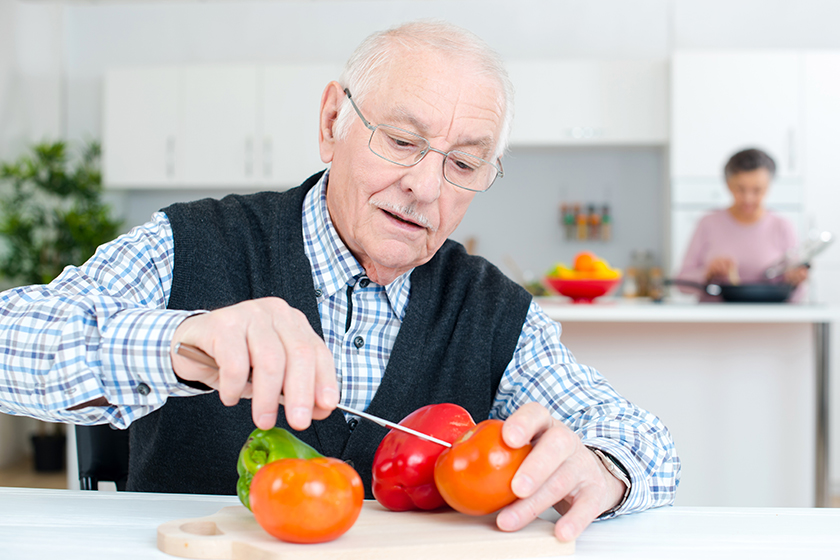Turning 50 is a cause for celebration in and of itself. You’re wiser, happier and more settled in your life than ever before, ready for the next milestone. Niggling health issues are a natural part of aging, but there are some mindful food choices you or your loved ones can make to lead an active lifestyle during this golden decade. While diets are tailored to each unique body, here are some foods to keep in mind when planning a senior diet.
Increase Fiber Intake
The average American adult consumes 10 to 15 grams of fiber per day. This figure represents nearly half of the fiber that men and women over the age of 50 should consume. The USDA recommends that men over the age of 50 consume at least 38 grams of fiber, while women over the age of 50 consume at least 25 grams of fiber.
Fiber-rich foods not only promote healthy bowel movements but also help in maintaining good gut health. They also lower cholesterol and reduce the risk of cardiovascular disease. Adults over 50 are at risk of developing Type 2 diabetes. A higher fiber intake regulates blood sugar and keeps glucose levels stable.
To make the most out of fiber in your food, make sure your loved ones incorporate foods such as berries, kale, spinach, grains, seeds, nuts, fruits, beans and avocados daily on their plate.
Incorporating Plant-Based Foods
Studies have found that a Mediterranean diet centered on plant-based foods (but not vegan) can provide prolific health benefits. A diet like this typically includes legumes, vegetables, seeds, whole grains, nuts, spices, herbs and healthy fats like olive oil. Incorporating these foods into your daily diet is thought to have substantial long-term cardiovascular health benefits and contribute significantly to an active lifestyle. The best part is that they are simple to obtain from your local grocer and do not require extensive prepping. Most of the above ingredients pair exceptionally well in a nutritional salad or sandwich, making it easy for your loved ones to transition to such a diet.
Check Your Vitamins
You may notice that your loved ones no longer have the same spring in their step they did when they were younger. While this drop in energy and lethargy is common in older adults, it can lead to more serious problems if ignored for too long. One of the causes of this sudden loss in energy could be a vitamin deficiency, specifically B12. Your loved ones must have regular vitamin tests to check for deficiency and take supplements as needed. You can also include naturally high-B12 foods like yogurt, fish like mackerel as well as eggs and meat.
Adults over 50 should also increase their calcium intake for bone health and reduce their sodium intake to counter the risk of cardiovascular disease and high blood pressure. Finally, consult with your doctor to ensure your family members maintain a healthy weight.
If your loved one lives alone, educate and encourage them to make small but consistent changes to their diet. If they’re residents of a retirement facility or are in Senior Assisted Living, you can talk to the community about the changes and additions to their dietary needs.
References:
https://www.health.harvard.edu/blog/should-i-be-eating-more-fiber-2019022115927







